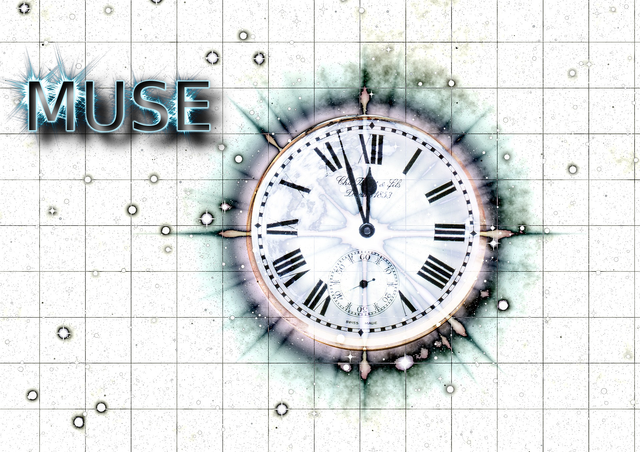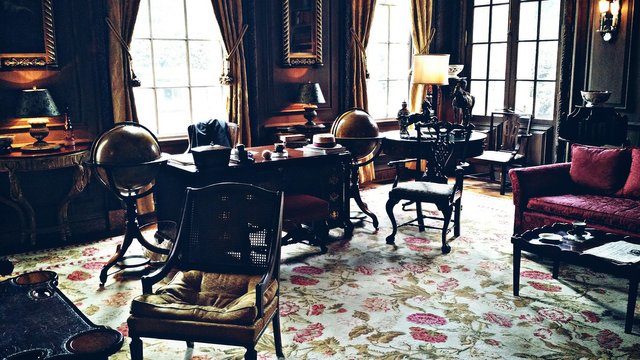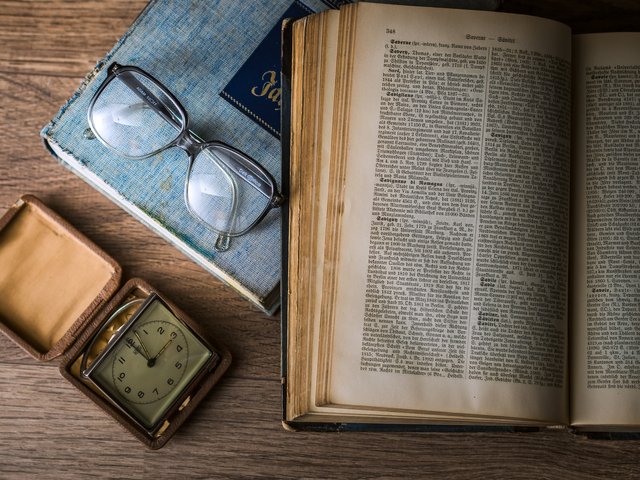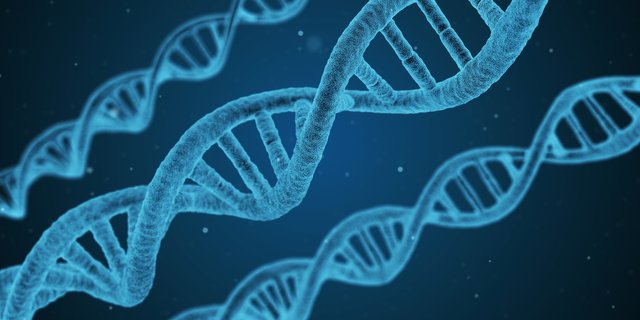Muse (Original Short Fiction)

I sat at the bar of the Drifter, a quiet little hole-in-the-wall pub on the south side of the city, angrily nursing a cheap lager. I wasn’t angry at anything in particular; I was angry at everything. Angry that five years of work had gone completely ignored by my peers; angry that nearly a decade of postgraduate research had been completely fruitless; angry that the school I had once held so dearly as my alma mater had thrown me out onto the street like a piece of flotsam jettied from the river; angry that I only had enough money left for a beer or a sandwich, and the beer wasn’t helping. I wanted to scream; I wanted to smash the pint glass in my hand; I wanted to find the Dean who had so flippantly dismissed me and provide a more forceful counter-argument to my work’s legitimacy -- one that would stain my burning-white knuckles red. But I knew I couldn’t do any of those things. No matter the injustice, or the seething anger I felt bubbling under the surface like the streams of carbon dioxide effervescing in my beer, I was a man of conscience and one of level-headedness. So, instead, I chose to stew in my frustrations, angry and alone.
At least, I had intended on being alone. I had come into the bar alone, and I was planning to leave alone, so I was understandably irked when another patron sat at the stool directly adjacent to me, despite there being plenty of others to choose from. I didn’t raise my eyes from my beer as he ordered a drink; I merely gritted my teeth a bit harder and raised my glass to my lips for another sip.
“Rough day?”
I dropped the pint in my hand onto the top of the bar with a bit too much force as he spoke to me, a thunderous clang echoing off the rows of liquor bottles in front of me. The bartender arched his brow with equal parts concern and warning.
“Mind your own goddamn business,” I growled quietly, taking another sip and being careful to set the glass down a bit more gently. The bartender looked away, ostensibly satisfied.
“Sorry, Dan, you just seemed like you might want to talk.”
“The last thing I want to do right now is--” I stopped short, suddenly catching the casual use of my name. I looked up at the man beside me and ran my eyes over his face. He looked vaguely familiar, but only in the way that you might recognize a friend-of-a-friend-of-a-friend. I was certain we had never met before. “How do you know my name?” I asked instead, a careful, guarded tone in my voice. The man simply smiled as the bartender handed him his drink.
“For now, let’s just say that I’m a fan of your work,” he said, giving his White Russian a slight stir before taking a sip.
Preposterous. There were a few things that my work had attracted, but none of them were “fans”. Besides, nobody outside academia would have even been aware of it. Only my very first papers had ever been published in a national journal; the rest had only circulated within my own field, and had been summarily dismissed by my peers. He was either lying to curry favor, or he had chosen not to support me throughout the years. Either way, my distrust for him was only growing stronger.
“And who might you be?” I asked, a drop of sarcasm in my voice suggesting that the question was more rhetorical than anything. He gave me another smile which only served to irritate me more.
“A friend,” he said. “Well, in a sense. A colleague, to be more accurate. Dr. Martin Stone, Head of Biomedical Sciences.” He extended a hand amicably, which I instinctively shook. I looked over his face again, a bit more carefully this time, searching my memory for his name. The two suddenly clicked as I recognized him from the campus directory. I must have seen him around the school a dozen odd times, but the two of us had never exchanged so much as a greeting before. I could only guess why he was approaching me now.
“Well, as a...fan, you should know that my professional relationship with that school has been terminated. I won’t be continuing my work any further.”
He dropped his head with a slight shake, his cheek scrunching up in a show of sympathy.
“Damn shame, that. I’ve gone out of my way to get copies of all your papers. You’ve done some truly remarkable work. I wish I could have been more supportive over the years, but I’m afraid the opinion of a neurochemist doesn’t carry much weight in the field of theoretical physics.”
Ah, so that was why. He was right -- voicing his support for my work wouldn’t have helped. If anything, it would have turned my peers even more steadfastly against me. My suspicion of Dr. Stone was starting to slacken, but I still wasn’t sure why he was approaching me now, of all times.
“I understand,” I said, finishing my beer and rifling through the bills in my wallet, “and I appreciate the thought, but if you’ll excuse me, I’m not particularly in the mood for company tonight.” He held up a finger as I stood from the bar and put on my coat.
“Actually, I came to see you for more than just a friendly ‘how-do-you-do’. There’s something important I would like to discuss with you. It has to do with your research. I realize that the last thing you probably want to do right now is set foot back on campus, but if you’ll indulge me a few hours, I have a bottle of single malt scotch in my office that I’ve been saving for a special occasion. If you’ll listen to what I have to say, I think you’ll agree that that occasion is now. What do you say?”
Now my curiosity was truly piqued. He was right that the thought of being on campus again made the bile surge in my gut, but he had a solemn and earnest look in his eye, as though a matter of great import hinged on my response. I narrowed my eyes a bit in consideration.
“What year single malt?” I asked. The edge of his lip turned up slightly in a smirk.
“Twenty-one,” he said. I let out a slightly exasperated sigh as I shrugged my shoulders.
“I guess I would be a right jackass to turn that down,” I said, his eyes glowing in excitement. I waited while he paid for his drink, then the two of us stepped out into the cool autumn night.

I stood in the foyer of Dr. Stone's office as he took my coat and hung it on the rack beside the door. The room more resembled a lounge or a sitting room than an office proper, and was far removed from the glorified box I had worked out of for the last five years. Against the right wall, underneath a frosted glass window, was a beige, three-cushion couch. Across from it sat a green, high back armchair, the leather on the seat slightly creased from years of use. Between the chair and the couch was a round oak coffee table, piled high on one side with a number of books, with several coasters and a small glass ashtray occupying most of the space on the other side. Behind the chair were more books -- more than I could count. The entire left wall of the office appeared to be occupied by bookshelves, which themselves were packed nearly to bursting. A cursory glance across the rows as I followed Dr. Stone into the room suggested an extensive range of subjects, from physics to philosophy to medicine. At the very back of the office was a stout-looking work desk, covered in papers and binders and illuminated by a small lamp -- a sight that struck me as ironically out of place in this room that seemed more concerned with comfort than work. I felt a slight sting of envy as I took it in, but more than anything I was slightly overwhelmed.
“I see the school treats its department heads well,” I said as I took a seat on the couch, just a twinge of resentment in my voice. Dr. Stone waved his hand dismissively as he switched on a standing lamp and walked to the back of the room, rifling through a few of his desk drawers.
“For a price,” he said, grabbing a few glasses and a bottle from his bottom drawer. “Students and faculty alike often come by to speak with me, so I hardly get much private use out of the room. I end up doing most of my work at home. You smoke?” I shrugged, reflecting on the last few days.
“No, but I’ve been thinking about starting.” Dr. Stone smiled, then pulled out two cigars from a small box on a stand in the back corner of the room. With surprising dexterity, he carried both glasses, the cigars, and the bottle of scotch over to the coffee table, where he gingerly set everything down and fell back into the armchair with a sigh. Reaching into his jacket pocket, he retrieved a small metal cigar cutter, and set about clipping the ends of the cigars. He handed one to me and placed the other in his mouth, taking a match from a small matchbox beside the ashtray and carefully lighting it, rolling the cigar over with his fingers as he puffed slowly. When the cigar was lit to his satisfaction, he waved out the match and tossed it into the ashtray, motioning for me to follow his example. I lit my own cigar -- with much less grace -- as he uncorked the bottle of scotch and poured a good measure into each glass. He set one on the coaster in front of me and held the other up to his nose, swirling it slightly. I picked up the glass and gave it a sniff myself; I was far from a connoisseur, but even I could appreciate the warm aroma of oak and peat that signified a high-quality whisky.
“So,” I said, holding a cigar in one hand and a glass of scotch in the other, “you mentioned that this was a special occasion. What exactly are we drinking to?” Dr. Stone gave a broad smile and held his glass out towards mine.
“Dr. Fellows,” he said, clinking the edges of our glasses together, “you are going to help me build a time machine.”
I laughed as he took a sip of his scotch and puffed casually on his cigar. I was sure he was trying to brighten my spirits before getting into the truth of the matter, but when I looked him over again, he was staring headlong at me with a completely deadpan expression on his face.
“Wait,” I said, my brow creasing in disbelief, “you’re not serious, are you?”
“I’m very serious.” His expression didn’t change.
“A time machine is...it’s science fiction. It can’t be done.”
“It can be done,” Dr. Stone said in a simple, matter-of-fact tone. “In fact, it already has been done.”
Dr. Stone placed his glass down and handed me a roll of paper that was lying on top of some books. I set my glass on the coaster in front of me and carefully laid my cigar on the edge of the ashtray, then I slid the rubber band off the paper and unrolled it, looking it over carefully. It appeared to be a blueprint for a device of some sort that I hadn’t seen before. Most of it was beyond my ability to scrutinize, but as I looked it over, there was suddenly one part of the device that I did immediately recognize.
“I know this!” I shouted suddenly, pointing to a detailed diagram of an ancillary component on the edge of the blueprint. “This is the tachyon field detector that I postulated!” I suddenly looked up with a flash of anger and suspicion in my eyes. “How do you know about this? That work was never released, publicly or privately. Did you break into my office? Have you been going through my files?”
Dr. Stone simply shook his head, taking a puff on his cigar.
“I told you, Dr. Fellows, this device has already been invented. You and I invented it. That blueprint is simply a reproduction of one that you drew yourself.”
I looked the paper over again, confused and irritated. Upon re-examining the design of the tachyon detector, I realized that it was much more advanced than the one I had postulated myself. I sighed and rolled the paper back up, my temples throbbing.
“I don’t understand what you’re trying to say,” I said, placing the paper back on the table. Dr. Stone nodded.
“I suggest you have some more scotch, Daniel. It’s going to be a long story.”

It had started five years ago -- in one sense, at least. In another sense, it was decades ago; perhaps centuries. Dr. Stone wasn’t sure anymore. But in a relative sense, it was five years ago, when I had earned my doctorate and had begun my research fellowship. I was studying quantum field theory with a special focus on theoretical particles -- particles mathematically theorized to exist, but hitherto unobserved. Dr. Stone had also recently begun his research fellowship, studying quantum-neurochemical interactions -- ways in which subatomic particles might exhibit external forces on the operation of the human brain. It was then that we began to collaborate, and it was then that Dr. Stone met Dr. Sarah Hitchens.
Dr. Hitchens was a neurophysiologist with a focus on electrophysiology and electroencephalography. Though Dr. Stone and Dr. Hitchens were in similar fields, Dr. Stone spent more of his time around the physics department than the biology one, and so it was, as he said, a “matter of fate” when the two bumped into each other in the lab one day. It wasn’t long before a mutual romance formed, and the two-man team of Stone and Fellows became Stone, Fellows, and Hitchens. Even after Martin and Sarah were married, that’s still how we signed all of our co-authored papers: S F & H.
After a few years of collaborative research, we were able to do what had only been speculated about before: directly observe a tachyon field. Though I had provided the framework and the mathematics to make it possible, it was Dr. Stone who had the insight to bring that work to fruition. His hypothesis, which was later verified through repeated testings, was that tachyon fields have a direct influence on our brains. Because tachyons travel faster than light, they move backward through time; by interacting with the human brain, they are able to impart information that has been carried from the future. That information is interpreted by the pineal gland as a flash of inspiration; the more relevant the information carried by the tachyon field, the more accurate the inspiration. Dr. Stone subsequently dubbed tachyons the “inspiration particle”.
That was only the first step, of course. With our success in being able to directly observe the effects of tachyons on the human brain, we realized that the potential existed to imprint tachyon fields with specific information that would then be carried backwards in time. By encoding particular messages or ideas into a tachyon field and allowing that field to interact with someone in the past, we could potentially alter the flow of time as we knew it. All we had to do was anticipate a tachyon field before it passed us by: a daunting task at first, until we discovered that, because of the reverse-temporal nature of tachyons, a particle always preceded its own field. By tracking and identifying particle interactions, we could easily anticipate when a useful field was imminent.
That was only the first of many problems, though. Due to the movement of celestial bodies, any tachyon field we imprinted would miss the Earth entirely after only a fraction of a second; in order to ensure that the tachyon field would intercept the Earth in general -- and a single person in particular -- at a specific point in the past, it had to be anywhere from hundreds of miles to light-years away. That particular problem took over a year to solve, but I was finally able to find a way to anticipate not only an appropriate tachyon cluster, but one which was entangled with another cluster as close or as far away as we needed. By modifying the field nearest to us, the entangled field would be modified in the same way. That was why the device I had seen on the blueprint had been so much more advanced than the one I had designed: it was significantly more discriminating.
Of course, we still had the issue of sending relevant information backwards in time. Simply imprinting a tachyon field with a message wasn’t enough; that message had to be relevant to the receiver, or the pineal gland would misinterpret it at best, or discard it as nonsensical at worst. Further, tachyon fields are extraordinarily small; 99.9~% of them would fail to interact with any human whatsoever if they were sent at random. Dr. Stone provided the only practical solution to this problem: because he had from an early age suffered from hyperthymesia -- essentially a photographic memory -- he could pinpoint particular places and times in his own past. In knowing exactly where he was at extremely specific times, we could imprint a suitable tachyon field with information that would be relevant to him at the time he would intercept it. This led to one final development.
Relying on Dr. Hitchens’ understanding of electroencephalography, the three of us were able to design a machine that would do three things: one, identify an entangled tachyon field at a distance predetermined to intercept Dr. Stone at a specific point in the past; two, make a copy of Dr. Stone’s electroneurographic makeup; three, imprint that information on the field as it passed the Earth, thus mirroring the alteration in the entangled field. According to our hypothesis, the entangled field would carry a copy of Dr. Stone’s mind into the past and intercept him at the time of our choosing. In doing so, Dr. Stone’s pineal gland would interpret the information as a vision of the future, essentially overwriting his consciousness in the past with his consciousness from the future.
We didn’t try it, of course. Dr. Hitchens was convinced that the process would kill Dr. Stone, and it simply wasn’t worth the risk. However, we were all confident in the technology we had designed, and so we intended to take it public. It was roughly a year after we had invented the machine, dubbed the “Muse” by Dr. Hitchens, that she fell ill. It wasn’t a typical illness: what started as occasional hand tremors quickly escalated into seizures and macular degeneration. She was eventually diagnosed with a rare variant of spinocerebellar ataxia. There were a few treatment options, but there was no known cure.

Dr. Stone considered it a pox -- a divine curse -- that his wife should be struck ill by the very type of disease her field of study existed to prevent. It was our meddling with the natural order that had brought this about, he said. I scoffed at the idea. Even if we had pursued completely different areas of study, I said, it wouldn’t have changed the natural outcome of that disease. Nothing we could have done would have stopped it. Dr. Stone was desperate to prove me wrong.
When the treatment failed, and Dr. Hitchens finally succumbed to that terrible illness, Dr. Stone strapped himself into the Muse. He imprinted his consciousness on a field six months earlier. He thought perhaps he could try the other treatment. It ended the same way as the first one. He made use of the Muse again. This time, he imprinted on a field a year earlier. He thought early diagnosis might allow for a greater chance of success. It didn’t.
In an act of complete desperation, Dr. Stone imprinted on a field five years earlier. We had discussed at great length how anything over a year would be unnecessarily dangerous, as the margin of error became exponentially slimmer the farther back we attempted to imprint, but he was a man possessed; he didn’t care whether he lived or died, so long as there was still a chance of saving his wife. I was unable to talk him out of it, and he was apparently successful at imprinting five years earlier.
He spent that time studying neurophysiology, in the hopes of finding a cure for spinocerebellar ataxia. He was unsuccessful after five years, and enlisted my help to develop a new Muse so that he could imprint on five years earlier once more, taking what he had learned and building on it.
He did this God knows how many times; Dr. Stone himself didn’t remember. Even with his hyperthymesia, so many inspirations became muddled after a while. However, this was finally the last time -- he had finally done it. He had cured his wife’s illness. All he had to do was imprint one final time, and he would be able to follow the original timeline, with one notable exception: his wife would be cured, and the three of us could continue making scientific advancements with no impediments.

After hearing the full story, and making our way through nearly the entire bottle of scotch, I agreed to help. I awoke the next morning exceptionally hungover on a couch that I only vaguely recalled, but after a quick recap, Dr. Stone and I started work on the Muse. It took months to complete, during which Dr. Stone gladly paid for my room and board. Once it was finished, Dr. Stone hooked himself up, after doing numerous calculations. Before he initiated the imprint, I stopped him.
“Doctor Sto...Martin, I’m still not completely convinced about the efficacy of this system. Suppose we over- or under-shoot. Your consciousness could be lost to the endless ocean of cosmic time, drifting for billions of years until the beginning of all cosmology simply uncreates it. It sounds like a fate worse than death to me. Are you positive you want to try this?” Dr. Stone simply smiled at me.
“I’ve heard you say that dozens of times, and not once has your concern ever held water. Every attempt before this has succeeded, so I see no reason to doubt our ability now.”
I was not privy to the details of alternate timelines, so I could not argue with Dr. Stone on that point. However, there was one final thing that was disturbing me.
“Supposing that we’re right about all this, and tachyons really can carry information backwards in time, and that information can be interpreted by the pineal gland -- well, humans aren’t the only animals with a pineal gland. In fact, nearly every vertebrate has one. Doesn’t that suggest some form of...manipulation? It seems far too convenient to be coincidental.”
Dr. Stone laughed as he finished attaching the electrodes to his head.
“Actually, you were in the middle of a paper about that very topic when I first imprinted, from what I remember. You speculated that a sufficiently advanced society in the future could have directed the evolution of life on Earth towards an intelligent one by imprinting vast tachyon fields with guiding information. By flooding the planet for millions of years with selective tachyon fields, relatively primitive animals could be forced to follow an intelligently-directed evolutionary path that favored the advancement of the brain in general and the pineal gland in particular. In essence, you believed that humanity was a primitive slave culture that was merely operating under the selective guidance of a more advanced culture in the future, who somehow benefited from our scientific or technological advancements now.”
Dr. Stone grunted as he adjusted a few electrodes and typed some discrete mathematics into the Muse’s terminal.
“Of course, there’s no actual evidence of that, but farbeit from me to doubt the man who invented a literal time machine. I’m just saying that maybe you should dial it back a bit. In any case, I think I’ve spent more than enough time in this timeline, if you will. I’m going to set things right. I’ll see you on the other side.”
Dr. Stone smiled as he initiated the Muse, then his face went blank and he collapsed onto the floor.

I have no doubt that our machine worked. There probably is a version of Dr. Stone who is celebrating his triumph in another timeline, enlightened by the mind of the Dr. Stone who no longer exists here. However, even though I suspect he thought it might, this timeline did not in fact cease to exist once he manipulated the past. From my, and this entire timeline’s perspective, Dr. Stone simply went comatose. The odds of him waking up are estimated to be less than 1%. I would push that estimate down to 0%. However, I want to believe that I gained something from my interaction with Dr. Stone. He believed in the concept of a “do-over”. From what I’ve seen, both theoretically and empirically, I have to conclude that there is no such thing. There are no second chances. Each of us only gets one life. Dr. Stone tried to cheat the system, but all he did was end multiple lives to enhance one. Each of those lives he ended left behind an entire world. Whether they were better or worse is for God to decide, and whether the world he ends up in is better or worse is similarly the decision of God, no matter how much Dr. Stone has tried to stack the deck.
That concept that he imparted just before he left, that we or another race could conceivably direct our own past, strikes me as arrogant in the extreme; to think that we could play God more convincingly and capably than He could defies reason. Because of that, I’ve decided to destroy the Muse. Whether another group on the level of S F & H decides to pursue the same idea is simply out of my hands. In this timeline, I will neither be a part of man’s attempt to supersede God, nor his ignorant acquiescence to a predetermined fate. I will choose my own destiny. I will take responsibility for my own actions. I will live my own life, and I will not try to fix the past by changing it. I will accept the judgment of time, and I will simply try to improve the life that is left to me. Whether intentional or not, that was the lesson I learned from Dr. Stone, and I can only hope that there are other Dr. Fellows out there who have come to the same conclusion.
Congratulations @griff! You have completed some achievement on Steemit and have been rewarded with new badge(s) :
Click on any badge to view your own Board of Honor on SteemitBoard.
For more information about SteemitBoard, click here
If you no longer want to receive notifications, reply to this comment with the word
STOPThis is amazing! I got a lot of Dirk Gently's vibes from it, probably just because of the old university and a time machine. I quite love the way you spun the timelines about like cotton candy. I love a good time travel piece. The last paragraph seemed a little forced, but overall your prose is at a great level.
Thank you for the response. Sorry for the delay, I've been off Steemit for a while. Just getting back into the swing of things.
I agree completely about the last paragraph being forced. I felt like I needed to wrap everything up with a tidy philosophical bow, and it ended up coming out of left field. I should have spent more time working on it, but I got lazy at the end. Honestly, thanks for calling me out on it, and for the rest of your comment. I really appreciate it.
Congratulations @griff! You received a personal award!
You can view your badges on your Steem Board and compare to others on the Steem Ranking
Vote for @Steemitboard as a witness to get one more award and increased upvotes!